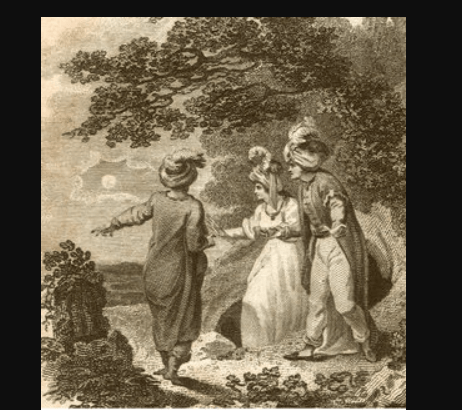Samuel Johnson’s Rasselas (Prince of Abyssinia) book, theme, short summary, analysis and sparknotes. Info about the Rasselas.

Rasselas; (original title The Prince of Abissinia), a moral tale or fable by Samuel Johnson, rapidly written and published in 1759, reputedly to defray the cost of his mother’s funeral. The story concerns a prince who, according to national custom, is confined to a “happy valley” until he ascends the throne. With his sister, an attendant, and the poet Imlac, he escapes to the outside world to discover what condition or profession makes men happy. After visiting a shepherd, an astronomer, a philosopher, and other individuals, he concludes that no man is truly happy because he longs for something which only a future life may supply. Thus the work is, first of all, a statement in terms of fanciful incidents of Johnson’s favorite thesis that life is a condition in which there is more to be endured than enjoyed. It is also, like Voltaire’s Candide (also published in 1759), a satire of the philosophy, popularized by Alexander Pope, which describes this as the best of all possible worlds, and which maintains that whatever is is right, and that all partial evil is universal good. But the differences are great between Voltaire’s ribald cynicism and Johnson’s Christian moralizing.
Rasselas was greatly esteemed and widely read in its own time. Like Johnson’s other writings and for the same reasons, it long ago ceased to be widely read or praised without great reservations. His solemn, sonorous, and abstract style went out of fashion along with his didactic moral tone. Yet there are profound if somber truths lightened by humorous passages not only tellingly satiric but exhibiting the author’s sense of fun and gift for good-humored ridicule. A modern reader may be impressed or amused by the description of the Great Pyramid as “a monument of the insufficiency of human enjoyments”; the ironical discussion of qualifications of a poet; conversation with the optimistic philosopher; and the ridicule of sentimental praise of the simple life in the visit to the shepherd. One of Johnson’s earliest literary works, a translation of Jerónimo Lobo’s Voyage historique d’Abissinie (1728), may have suggested the setting, but the allegorical tale with an Oriental scene was a popular form in the 18th century.